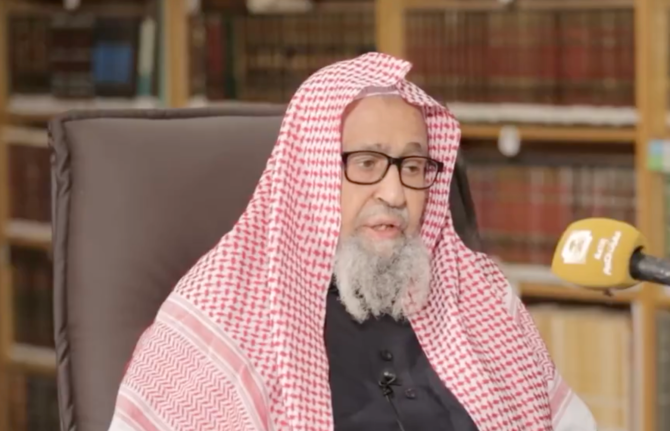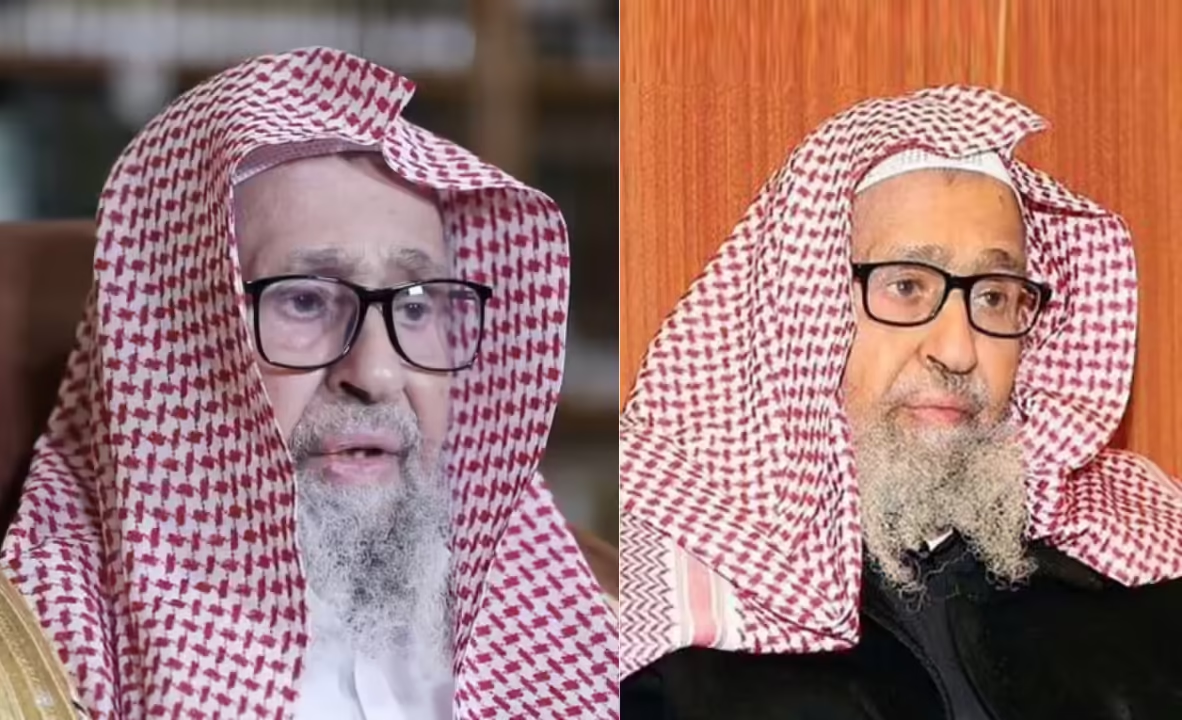The Kingdom of Saudi Arabia has announced a major shift in its religious leadership, appointing the esteemed scholar Sheikh Saleh bin Fawzan bin Abdullah Al-Fawzan as the new Grand Mufti. The appointment, made via Royal Decree by Custodian of the Two Holy Mosques King Salman bin Abdulaziz Al Saud, marks a pivotal moment in the nation’s spiritual and judicial direction.
The role of the Grand Mufti is the highest religious position in the Kingdom and is granted the rank of Minister. By this decree, Sheikh Al-Fawzan also assumes the leadership of two other critical religious institutions: the Chairman of the Council of Senior Scholars (the Kingdom’s highest religious body) and the President of the General Presidency of Scholarly Research and Ifta (the institution responsible for issuing official religious edicts, or fatwas).
The appointment of Sheikh Saleh Al-Fawzan follows the passing of his venerable predecessor, Sheikh Abdulaziz bin Abdullah Al-Sheikh, who served as Grand Mufti for over twenty-five years until his death in September. Sheikh Al-Fawzan, at 90, brings an unmatched depth of experience and a respected, though highly conservative, voice to the zenith of Saudi Arabia’s religious hierarchy, underscoring both a continuity of fundamental religious principles and the enduring influence of the clerical establishment amidst the Kingdom’s dramatic social and economic reforms under Vision 2030.
Sheikh Saleh Al-Fawzan: An Icon of Conservative Scholarship
The new Grand Mufti, Sheikh Saleh Al-Fawzan, has been a fixture in Saudi religious life for decades, earning a reputation as one of the most senior and influential Salafi scholars in the Kingdom. His appointment is a testament to a lifetime dedicated to Islamic scholarship, jurisprudence (fiqh), and teaching.
Born in 1935 in the village of Ash-Shamasiyyah in the Al-Qassim Province, Sheikh Al-Fawzan was orphaned at a young age. His early life was shaped by traditional religious education, learning the Quran and the fundamentals of reading and writing under the tutelage of the local mosque’s Imam, Sheikh Hammoud bin Sulayman At-Tilāl. This traditional foundation set the stage for a rigorous academic career that would later define his public service.
A Distinguished Academic and Judicial Career
Sheikh Al-Fawzan’s formal education is a record of distinguished achievement within Saudi Arabia’s prestigious religious institutions. After completing his primary studies, he enrolled in the Scholarly Institute in Buraydah when it opened in 1954. His academic excellence led him to the College of Sharia in Riyadh, from which he graduated in 1961.
His commitment to fiqh—Islamic jurisprudence—saw him pursue both a Master’s and a Doctoral degree from the same college. His academic focus areas were highly specialized: his Master’s thesis was on inheritance law, titled “Al-Taḥqīqāt Al-Marḍiyyah fī Al-Mabāḥith Al-Farḍiyyah,” and his Doctoral dissertation was on dietary rulings, titled “Aḥkām Al-Aṭʿimah fī Al-Sharīʿah Al-Islāmiyyah” (The Rulings of Foods in the Islamic Sharīʿah). This specialization in the practical application of Islamic law equipped him perfectly for the position of Mufti.
Following his graduation, Sheikh Al-Fawzan dedicated his career to education and the judiciary:
- He began teaching at the Scientific Institute in Riyadh before moving to the College of Sharia.
- He later taught in the postgraduate programs at the College of Fundamentals of Religion.
- Crucially, he served as the Director of the Higher Institute of Judiciary (Ma’had Al-‘Ālī lil-Qaḍā), a role that placed him at the heart of the legal training for the Kingdom’s judges.
Throughout his career, he has been a consistent presence in the highest echelons of religious authority, serving as a respected member of the Permanent Committee for Scholarly Research and Ifta since 1992 and a member of the Council of Senior Scholars.
The Grand Mufti’s Role in a Changing Kingdom
The position of the Grand Mufti of Saudi Arabia is not merely ceremonial; it is the ultimate intersection of religious law, social guidance, and state policy. The Grand Mufti is the definitive voice in interpreting and applying Sharia (Islamic law) in the Kingdom.
Power and Authority: The Trifecta of Leadership
Sheikh Saleh Al-Fawzan’s appointment consolidates power over three principal religious organs:
- Grand Mufti: The chief issuer of religious legal opinions (fatwas). While fatwas are technically non-binding on the government, they heavily influence the Saudi judicial system, public morality, and social policy.
- Chairman of the Council of Senior Scholars (CSS): The CSS is the most powerful religious advisory body in the Kingdom. Its members are appointed by the King, and the Council is responsible for formulating the unified religious stance on major issues. By heading the CSS, the Grand Mufti steers the religious establishment’s direction and provides crucial religious backing for major legislative and societal changes proposed by the monarchy.
- President of the General Presidency of Scholarly Research and Ifta: This body oversees the entire structure for conducting religious research and issuing official fatwas to the public, ensuring that religious rulings disseminated across the Kingdom are consistent and aligned with the state-sanctioned interpretation of Islam.
The rank of Minister accorded to the Grand Mufti underscores his political significance, placing him at the highest table of state affairs.
Navigating Tradition and Modernity
Sheikh Al-Fawzan takes the helm at a particularly complex juncture in Saudi history. Crown Prince Mohammed bin Salman’s Vision 2030 initiative has ushered in unprecedented social and economic liberalization—a seismic shift that has introduced significant challenges to the traditional Wahhabi religious establishment.

The new Grand Mufti, known for his unyielding adherence to traditional Salafi interpretations, represents continuity. His past pronouncements on various social issues, including his strong condemnations of sectarianism, his firm stance on issues like the role of women, and his cautious approach to certain modern technologies, signal that the religious core of the Kingdom remains highly conservative, even as the social facade modernizes.
His role will be to manage the tension between the ruling family’s rapid modernization efforts and the traditional expectations of the religious class. The Grand Mufti must provide religious legitimacy to the government’s policies while maintaining credibility among the Kingdom’s conservative population. The balance he strikes will be critical to the pace and stability of the ongoing reforms.
The Legacy of the Muftis and the Al-Sheikh Lineage
The appointment of Sheikh Al-Fawzan also carries historical weight, challenging a tradition that had long favored the descendants of Muhammad ibn Abd al-Wahhab, the 18th-century reformer whose teachings form the bedrock of the Kingdom’s religious identity.
A History of Authority
The office of the Grand Mufti was formally established in 1953. Historically, the position has been primarily held by members of the Al-Sheikh family, descendants of Ibn Abd al-Wahhab, solidifying the pact between the Al Saud ruling family and the religious establishment.
- Muhammad ibn Ibrahim Al ash-Sheikh (1953–1969)
- The office was temporarily abolished and later restored.
- Abdulaziz ibn Abdullah Ibn Baz (1993–1999): A notable exception to the Al-Sheikh lineage.
- Abdulaziz Al Sheikh (1999–2025): A return to the Al-Sheikh family.
Sheikh Saleh Al-Fawzan becomes only the fourth Grand Mufti in the Kingdom’s modern history and the second person outside the Al-Sheikh family to hold the title. This fact highlights his unparalleled stature as a scholar. His selection over several highly regarded members of the Al-Sheikh family, who were also strong candidates, is a strong indication that the criterion for this vital appointment is solely rooted in unparalleled scholastic authority and seniority within the Council of Senior Scholars.
A Voice for Millions
Beyond his formal roles, the new Grand Mufti is widely known across the Muslim world for his extensive scholarly contributions and public engagement.
His works, including numerous books on Islamic jurisprudence, creed, and commentary, are studied in religious schools globally. Perhaps his most famous contribution to the public sphere is his long-running participation in the Saudi radio program, “Nūr ‘Alā ad-Darb” (Light Upon the Path). Through this program, Sheikh Al-Fawzan—alongside other senior scholars—has spent decades answering questions from listeners on every imaginable aspect of daily life, offering guidance and clarity according to the Hanbali school of jurisprudence and Salafi methodology. This media presence has made his voice familiar and deeply trusted by millions of Muslims, from the Arabian Peninsula to the furthest corners of the Islamic diaspora.
The Path Forward under Sheikh Saleh Al-Fawzan
The appointment of Sheikh Saleh Al-Fawzan is a carefully calculated move by the Saudi monarchy. It signifies a desire for stability, continuity, and an assertion of traditional religious identity in a world of rapid transformation.
As Grand Mufti, Sheikh Al-Fawzan is expected to continue his consistent policy of promoting strict adherence to the Quran and Sunnah, and supporting the political authority of the King and Crown Prince. The combination of his undisputed scholastic credentials and his history of political loyalty makes him the ideal candidate to head the religious establishment.
His leadership will be key in defining the boundaries of permissible social change. As Saudi Arabia opens up to the world, modern challenges regarding entertainment, tourism, interfaith dialogue, and gender roles will continually require official religious endorsement or guidance. The tone and content of the fatwas issued under the new Grand Mufti will thus be a crucial barometer for observing how the Kingdom attempts to reconcile its deeply rooted conservative religious history with its ambitious, modern future.
The world will be watching as Sheikh Saleh Al-Fawzan navigates this delicate path, guiding the spiritual life of a nation that is both the custodian of Islam’s holiest sites and one of the fastest-changing societies on the planet. His tenure promises to be as authoritative and impactful as his long, distinguished career in scholarship has been.
Do Follow Gulf Magazine on Instagram



